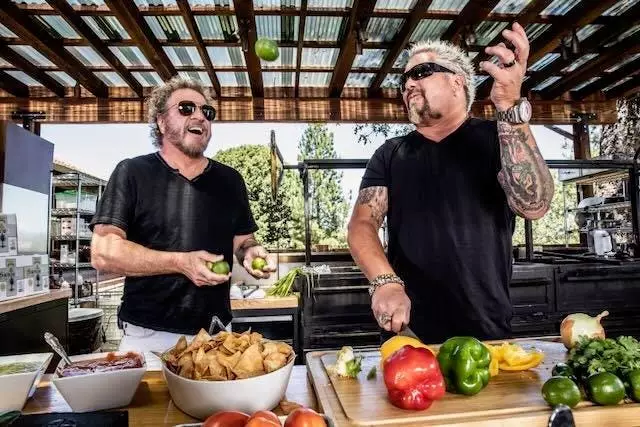In a scenario reminiscent of a classic heist film, Santo Tequila has found itself at the epicenter of a massive robbery that has significantly impacted its operations. Between November 9 and 13, two truckloads carrying a staggering 4040 cases—equating to 24,240 bottles—of the brand’s tequila were hijacked shortly after crossing into the United States from Mexico. This theft did not merely affect the physical loss of tequila but struck a heavy blow against Santo’s market presence, particularly during a crucial sales period leading up to the holidays.
Santo Tequila, co-founded by rock legends Sammy Hagar and Guy Fieri, was preparing for a busy 2024 holiday season. The brand’s president, Dan Butkus, expressed deep concern that this particular shipment would be the last for the year, leaving the company unable to meet consumer demand during a peak sales window where approximately 35% of their revenue is typically generated. The stolen cargo included not only their popular Blanco and Reposado varieties but also the irreplaceable Extra Añejo Single Barrel, effectively wiping out the brand’s entire remaining stock of this distinct product, which had taken 39 months to produce.
The methodical nature of the heist hints at a well-orchestrated operation. According to Butkus, a shipping broker engaged by Santo Tequila unwittingly helped set the stage for the criminals by employing a trucking company organized specifically to execute this theft. Using sophisticated tactics such as GPS emulators, the perpetrators were able to mask tracking systems and send falsified updates about the truck’s condition—a substantial deception that provided them an opportunity to execute their plan undetected. The theft occurred just moments after crossing the border into Laredo, Texas, and went unnoticed until the destination distributors raised the alarm about the trucks’ non-arrival.
As investigations progressed, authorities tracked one of the hijacked trucks to a known criminal area in Los Angeles, while the other vehicle remains missing. Butkus commented on the operational efficiency of the thieves, noting that once their goods were stolen, they fell into a legal void, complicating any potential recovery efforts. The likelihood of salvaging the lost products appears slim, as regulations governing the movement of alcoholic beverages require stringent control from the point of production to the consumer.
This incident serves as a glaring reminder of the vulnerabilities inherent in the alcohol distribution industry, where theft has become alarmingly prevalent. Santo Tequila’s misfortune is not isolated; similar high-profile thefts have occurred, including a December 2023 heist of 19,000 bottles of Hacienda Chatun Tequila and a significant wine robbery earlier that year, indicating a disturbing trend of organized crime targeting alcoholic beverages.
The rise in alcohol theft showcases the ease with which these products can be diverted into grey markets, undermining legitimate retailers and posing risks to consumers unwittingly purchasing stolen goods. Santo Tequila’s predicament raises important questions regarding the safety measures taken by companies in the alcohol industry and the pressing need for more robust security measures to ensure the integrity of supply chains.
Despite the setback, the resolve and optimism of Hagar and Butkus shine through the adversity. The brand is taking proactive steps to protect future shipments and rebuild its inventory. They are collaborating closely with local authorities and have reached out to Cargo Net, a specialized organization focused on helping businesses mitigate cargo theft risks. In a bid to encourage community assistance, Santo Tequila is also offering a $10,000 reward for information leading to the identification of those responsible for the hijacking.
Butkus remains optimistic about recovery efforts, emphasizing the importance of consumer safety and adhering to regulations. He stated that even if the stolen tequila were recovered, they would not sell it due to concerns about potential tampering. Their ethical commitment to priority over profit underscores the brand’s integrity in a challenging situation.
As Santo Tequila navigates this crisis, they remind us of the resilience and fortitude required in business, especially for an independent brand in an increasingly competitive market. Their proactive approach may well set a precedent for the industry, blending vigilance with adaptability—qualities that are essential for survival amid the challenges of modern commerce.


Leave a Reply